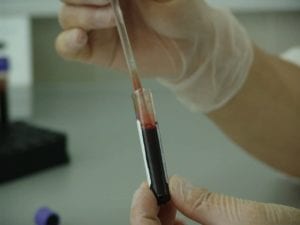When some people hear “placebo effect,” it conjures up images of sugar pills designed to stimulate patient belief. But according to Healio, the term has a different meaning in a medical context. Placebo effect refers to the way in which physicians can make the patient experience more meaningful, even without active therapy.
What is the Placebo Effect?
The placebo effect uses meaning and context to help patients better understand their treatments, and have hope for the future. In other words, context matters. Positive patient outcomes are not just based on the efficacy of treatment, but on how doctors and patients view conditions and treatments, or elements such as waiting room size, length of time to be seen, and communication.
Doctor-Patient Communication
As COVID-19 spreads across the globe, the importance of doctor-patient communication is at an all-time high. Patients find comfort in their clinicians being able to not only understand what they are going through, but also to provide guidance during this period.
Embracing a Positive Mindset for the Placebo Effect
A positive doctor can improve patient function, emotion, and pain management. In this way, the placebo effect works based on the doctor enhancing the patient’s situational context.
Dr. James Galloway, PhD, MSc, explains that positivity and comfort can be provided even in small interactions. If introducing a new treatment, switching the perspective is one way to promote a positive mindset in patients:
“When I talk about a new medication, my opening line should be, ‘This is a drug that works really well for rheumatoid arthritis,’ as opposed to, ‘Here is a list of side effects.’”
Though doctors do have a responsibility to share information on adverse reactions, reframing the way that patients view a treatment can be incredibly beneficial.
The Power of Expectation
Dr. Leonard H. Calabrese, DO, says that managing expectations is especially helpful for patients with conditions such as myalgic encephalomyelitis or fibromyalgia. For many patients, lifestyle changes are offered as a treatment solution.
Thus, expectation management is helpful because it allows patients to remember that change may not come in a day, a week, or even a month. When it comes to patients who have a longer therapeutic journey, remembering that positive change is coming is crucial.
Phrasing
Have you ever gone to get your blood drawn, terrified of how it’s going to hurt, and your fear makes the pinch that much worse? If you go into something being told that it’s uncomfortable, you will most likely experience more pain than if you weren’t worried about it hurting.

So when doctors are explaining treatments, outcomes, or disorders to patients, the phrasing is very important. Physicians should not lie to patients or give false hope, as that is unethical. However, positioning a certain treatment or idea in a more engaging and hopeful way can encourage patients to become more involved in their own treatments.
Studies on the Placebo Effect
Rheumatology
A study published in the New England Journal of Medicine found that patient responses to placebos and active therapies were almost indistinguishable. Up to 19% of adults and 26% of elderly patients experienced adverse effects on the placebo. This represents a lapse in expectation management. Read the full study here.
A study in Clinical and Experimental Rheumatology found that the placebo effect was extremely effective in pain management for patients with osteoarthritis. Patients experienced an average of 75% pain reduction, 71% functional improvement, and 83% stiffness improvement. The placebo effect also changed the way that patients react to treatment. Patients felt a 47% improvement when receiving an intra-articular corticosteroid injection as compared to a 91% improvement with joint lavage. Read the full study here.
In the Journal of Rheumatology, researchers explore 32 placebo-controlled clinical trials to see how patients have changed their responses to placebos, if at all. While placebos have increased in efficacy, researchers warn that this could just be a result of the patients being chosen for these clinical trials. Read the full study here.
Neurology
The placebo effect has been studied more in rheumatology than neurology. However, some more recent studies have found that there are measurable neurological responses to positive communication or messaging. Basically, this means that the brain can be made to believe that pain is decreasing.
This relies on three elements:
- Whether a patient and doctor believes that a treatment will work (expectancy)
- Positive messaging during the treatment ritual
- Linking active and non-active treatments to stimulate positive responses to non-active treatments
- For example, just taking a pill can help someone feel better. This isn’t because the pill is working yet, but because patients are anticipating the pill working, leading to an improvement in pain and mobility just based on how the brain perceives the action.
Nocebo
Nocebo is the opposite of placebo – as in, where positive messaging will contribute to positive patient outcomes, negative messaging will contribute to negative patient outcomes.
For example, if patients are told that a specific treatment isn’t very effective:
“It can be a self-fulfilling prophecy for negative outcomes. Some patients actually get worse rather than better.”
While there is still much research to be done, these findings have implications for the future of disease research. How could clinicians better integrate the placebo effect into treatment strategies? In the end, says Calabrese, the placebo effect won’t cure lupus nephritis or multiple sclerosis, but it can help manage pain, sleep, fatigue, expectations, and emotional states. As such, doctors should do their best to utilize the placebo effect in their practices.






